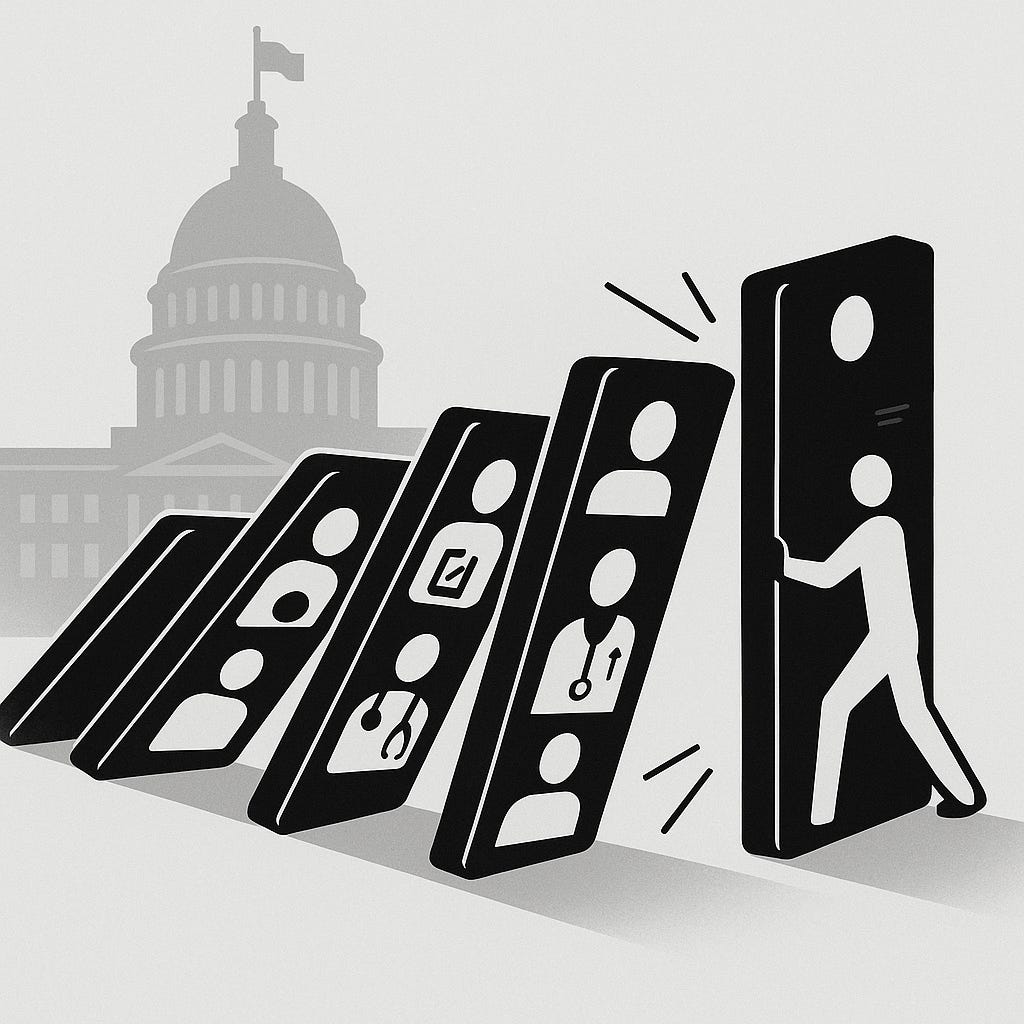In today’s decision (July 8), the U.S. Supreme Court declined to block mass downsizing plans for federal agencies. It gave the green light, at least for now, to a wave of job cuts under the Trump administration’s restructuring plans.
Cutting thousands of federal jobs may sound like a way to save money or improve efficiency. But the reality is more complicated—and more dangerous.
Federal workers do the behind-the-scenes work that keeps everything running: helping veterans, responding to disasters, inspecting food and water, enforcing labor and environmental laws, and processing Social Security and Medicare.
They aren’t just “bureaucrats.” They’re public servants doing work that affects all of us.
When Trump’s political appointees slash jobs in government—especially in oversight, technical support, and frontline service—they don’t just shrink budgets. They also shrink the capacity of government to serve, protect, and respond. They slow down services.
They create more opportunities for mistakes, corruption, and political interference.
I’ve never been much of a mathematician, but here's a formula that helped me understand what drives government effectiveness. It looks a little nerdy at first, but it makes the relationship clear:
Performance Score ≈ (Oversight Quality + System Strength+ Transparency + Public Trust) ÷ (Essential Jobs – Job Cuts + Political Interference)
Translation:
The more leaders cut the people and politicize the work, the harder it is to deliver what government is supposed to do.
The more they support strong systems, transparency, and public trust, the better it performs.
And we’ve seen what happens when performance falls.
When FEMA is short-staffed during wildfire season, or the Veterans Administration can’t process benefits on time, the people who suffer aren’t just government workers. They’re the rest of us.
Let’s fix what’s broken. But let’s not weaken the parts of government that actually work.
Gutting public service is not reform. It’s sabotage dressed up as savings.
Advocacy Resources
🟦 Public Services & Civil Service Protections
A ranked guide to organizations defending fair, professional public institutions.
🟦 Executive Overreach & Abuse of Power
A ranked guide to organizations resisting authoritarianism and defending democratic norms.
A ranked guide to advocacy groups supporting U.S. veterans through health care, housing, jobs, and justice
A guide to advocacy organizations working to strengthen disaster response and protect communities from climate and crisis-related emergencies.
🏛️ How to Contact Federal Officials—and Be Heard
🏛️ Contact Information: Washington's U.S. Senators and Representatives
🏛️ U.S. Cabinet-level Departments and the Executive Office of the President
Share
If my commentary resonates with you, please share it with friends.
Subscribe
Get new posts from Plainly, Garbl delivered to your inbox.


